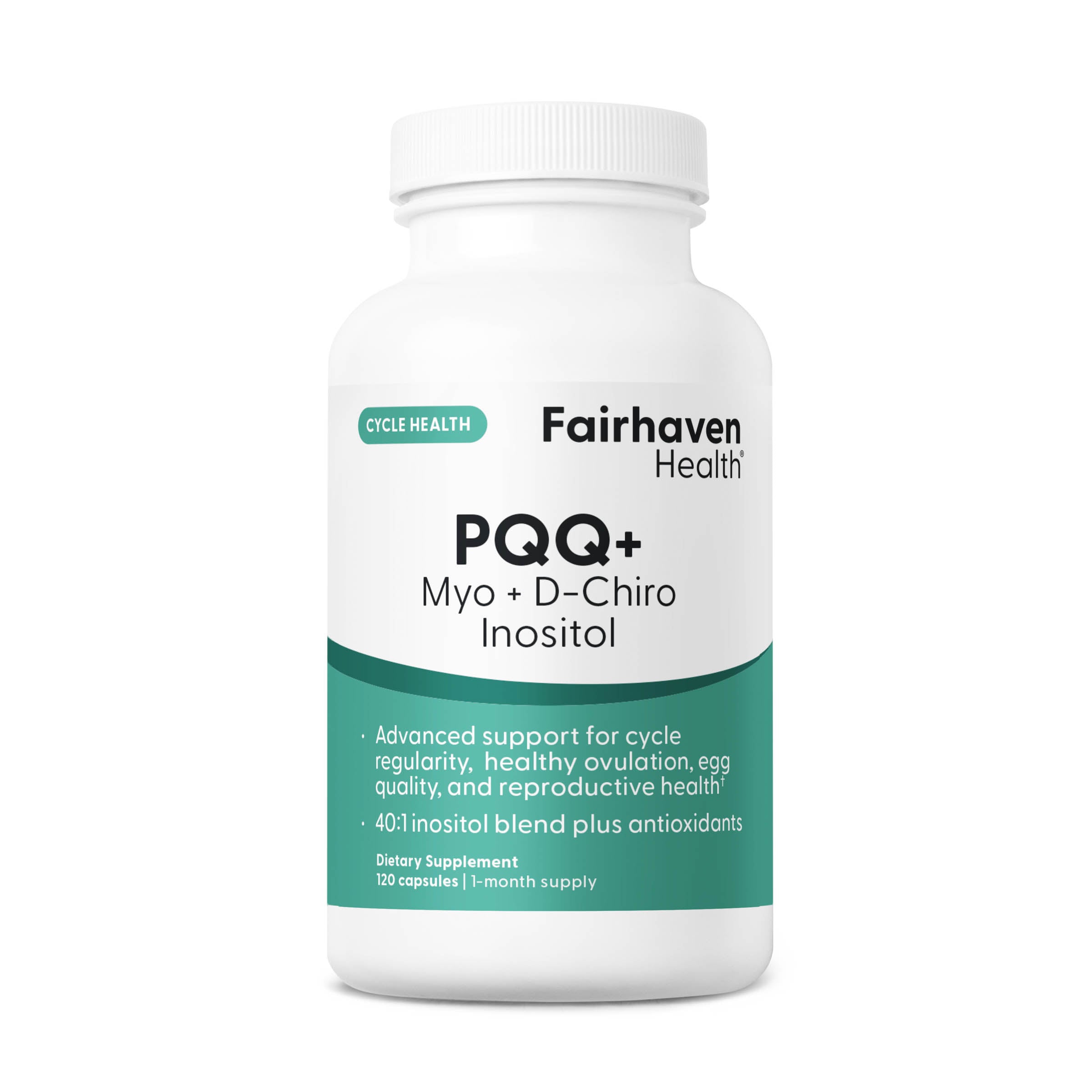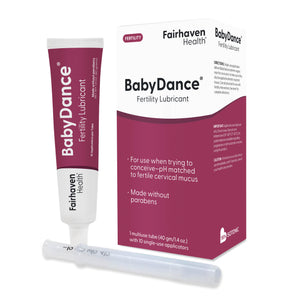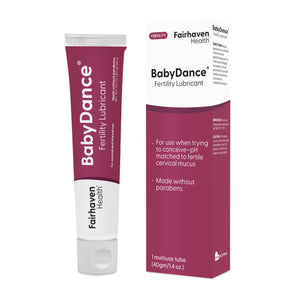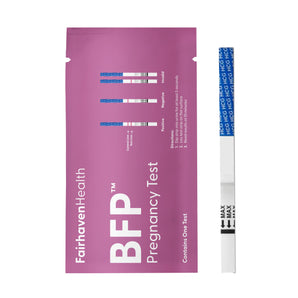Robitussin (Guaifenesin) for Support of Healthy Cervical Mucus Production
At first most people wonder what on earth a cough syrup has to do with fertility, but the logic is easily found in the fact that it is an expectorant and is being used to loosen and thin mucus - just in a different place than the lungs!
The name Robitussin was used in the title of this article as it is a common brand of cough syrup in the United States. It is used on the fertility boards and newsgroups in the same manner as saying Band-Aid for an adhesive strip used to cover a cut. Any expectorant that contains guaifenesin as the only active ingredient is fine to use.
What kind of Robitussin is used to support healthy cervical mucus production?
One should buy the plain kind with no letters after it. The only active ingredient is guaifenesin, and it contains 100 mg per teaspoon. It is very important to avoid the versions that contain decongestants as those may dry up cervical mucus. Also, there is some conflicting information about whether dextromethorphan, the DM in some cough medicine names, may be linked to birth defects such as neural tube defects and cleft palate.
Do I need to use the brand Robitussin?
No. Robitussin is the most common brand name, at least in the U.S., that carries a guaifenesin-only expectorant, but there are other brands and generics available. As long as the only active ingredient is guaifenesin, you can use any variety you find. For those with diabetes or otherwise concerned about sugar intake, there is the brand Diabetic Tussin available.
What is the recommended dose of guaifenesin?
The recommended dose for improving cervical mucus, based on a 1982 article in Fertility and Sterility, is two teaspoons (200 mg) taken orally three times per day. If mucus still appears thick and doesn't have good spinnbarkeit (ability to stretch), one can take as much as four teaspoons (400 mg) four times per day (the maximum dose on this over the counter medication). Each dose should be taken with a full glass of water, and attention should be given to drinking plenty of fluids throughout the day -- one needs water to produce mucus.
What cycle days should one take guaifenesin?
Just as the dose can vary a bit, so can the days. The article linked above had patients starting the guaifenesin on cycle day 5 - five days after the start of menses. This seems rather early as mucus is not an issue until about five days before ovulation - based on the fact that sperm can only live five days at best, and most pregnancies are the result of intercourse in the five days leading up to ovulation. Because of this information, it is now more common for doctors to suggest starting guaifenesin about five days before expected ovulation and continuing through ovulation day (six days total, for those with regular cycles). For those with irregular cycles, one should start taking guaifenesin about five days before the earliest day ovulation might be expected. For those taking Clomid (clomiphene citrate, Serophene) in a 5-day protocol, one can probably wait until the day after the last Clomid pill before starting the expectorant.
Is guaifenesin available in pill form?
Yes, but in most cases a prescription is needed. In the U.S., one can get a 600 mg time released caplet as the generic Guaifenesin CR, or brands Humibid LA, and Fenesin. This is often less expensive than the liquid. Another brand that is available OTC is Mucinex, though it probably is not a cost savings.
How does one diagnose cervical factor/hostile mucus?
Many women try taking guaifenesin after noting little or no egg white (stretchy) cervical mucus while charting their fertility signals, but clinically it is diagnosed when a doctor checks mucus one or two days before ovulation in what is usually referred to as a post-coital test. The doctor does a vaginal exam and takes a sample of mucus to immediately analyze under a microscope to check for live sperm and for a ferning pattern. It is also checked for signs of infection. Quality mucus will be stretchy, fern, lack cellularity, and have live sperm swimming in it.
Why do so many women take guaifenesin while on Clomid?
Clomid (clomiphene citrate, Serophene) can cause hostile mucus in 30 percent or more of women using it. Higher doses tend to be more associated with less cervical fluid and a thinner uterine lining, than the 50 mg dose.
Will guaifenesin help if there is little or no mucus present?
Guaifenesin doesn't actually create mucus, it only thins what is already there. One would need to look into why there is no mucus (infection, not really ovulating), or bypass the mucus issue by doing intrauterine insemination.
Does one need to take guaifenesin when doing intrauterine insemination (IUI)?
It would only make sense to take guaifenesin if one is planning to have intercourse in addition to doing IUI. Those doing donor insemination, for example, wouldn't benefit.
Will taking guaifenesin cause any problems if it isn't needed?
Probably not. Since fertile mucus can be watery, there is probably no harm in taking guaifenesin and thinning it out.
What are some other possible ways to support healthy cervical mucus production?
Drinking plenty of water should always be considered in addition to any other therapies one might try. Estrogen is sometimes given to help mucus production, though doctors have mixed opinions of its benefit, especially when used with Clomid (and some suggest using Tamoxifen instead of Clomid). Injectable gonadotropins used for controlled ovarian hyperstimulation often have a positive effect on cervical mucus as well. Some home/natural remedies include eating salty foods such as popcorn (mucus is very salty), taking evening primrose oil and other dietary supplements (e.g. l-arginine, n-acetyl cysteine and Vitamin C), avoiding dairy products (they can thicken mucus), eating lots of baby carrots, and also avoiding antihistamines. Another suggestion that is increasing in popularity is to drink grapefruit juice in order to improve or increase the amount of cervical mucus. If one is on prescription medications, it is a good idea to look for warning about grapefruit juice consumption (it isn't recommended with several medications for hypertension, for example).
Can lubricants be used in place of CM?
When you are trying to conceive naturally, intercourse is often less spontaneous and exciting, and especially if you are taking fertility medications, you might experience some unexpected dryness during intercourse. When this happens, many TTC couples reach for an intimate lubricant to enhance the comfort and pleasure of intimacy. But, buyer beware: Most over the counter lubricants are not "fertility-friendly", meaning that they are not tested and verified to be safe for sperm and eggs. This is counterproductive when you are trying to conceive, as you want to be sure to make every sperm count. If you are looking for a lubricant to use when "baby-dancing" be sure to select from the few commercially available lubricants that have been cleared by the FDA in the special PEB category of fertility lubricants.
Does guaifenesin do anything for male factor infertility?
It is possible that men with thick semen may benefit from guaifenesin in the same manner it helps with cervical mucus in women. The suggested doses on the newsgroups and fertility boards range from two teaspoons twice per day to four teaspoons four times per day.







